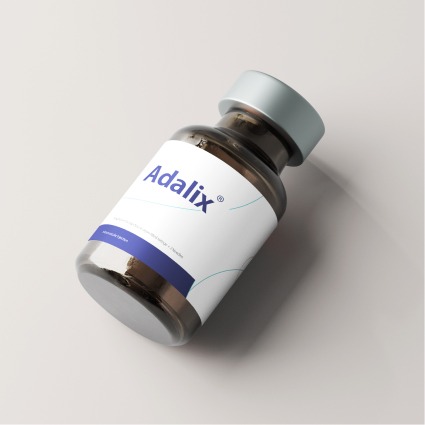Genetic disorders pose a pressing healthcare challenge globally, particularly in the GCC, where consanguineous marriages are prevalent. With a consanguinity rate of 56%, Saudi Arabia has seen a surge in genetic disorders such as beta-thalassemia, sickle cell anemia, and various metabolic diseases. In response to this urgent need, Saudi Arabia launched the Saudi Genome Program (SGP) in 2018 as part of its Vision 2030 initiative. This ambitious project aims to revolutionize genomic research and establish Saudi Arabia as a leader in gene therapy development.
What Is the Saudi Genome Program?
The Saudi Genome Program is an ambitious national project designed to create a comprehensive genetic database, improve the diagnosis and treatment of genetic disorders, and develop gene therapies tailored to the Saudi population. Its primary objectives include:
- Sequencing 100,000 genomes to build a robust genetic repository.
- Reducing the average diagnostic time for rare diseases, currently at over five years globally.
- Promoting preventative measures like premarital and newborn screening to identify carriers and high-risk individuals.
- Developing precision medicine and gene therapies specific to the region’s genetic needs.
By focusing on these goals, the SGP addresses healthcare challenges and aligns with Saudi Arabia’s broader economic diversification and scientific advancement plans.
Achievements of the Saudi Genome Program
The Saudi Genome Program is a testament to Saudi Arabia’s commitment to tackling genetic health challenges through cutting-edge research. Its significant achievements, such as reducing diagnostic timelines for rare disorders from an average of 60 months to just 18 months, mark a pivotal shift in how genetic disorders are diagnosed and understood. These successes not only set a foundation for more effective and personalized healthcare solutions but also inspire hope for the future of gene therapy in the region.
Genomic Sequencing Milestones
As of November 2024, the SGP has sequenced over 63,000 genomes, representing 63% of its target. This effort has led to the identification of 7,500 pathogenic variants unique to the Arab population. Identifying these variants has improved the accuracy of rare disorders by 35%, significantly benefiting patients who previously faced misdiagnoses or prolonged diagnostic processes.
Additionally, the program has identified specific genetic markers for conditions such as Niemann-Pick disease and familial hypercholesterolemia. In pilot studies, these findings have reduced diagnostic timelines for rare disorders from an average of 60 months to just 18 months, marking a significant step forward in genetic healthcare.
Research Contributions
The SGP has generated a wealth of academic knowledge, resulting in 140 peer-reviewed publications. These papers cover a wide range of topics, from identifying novel mutations to exploring the mechanisms of genetic diseases. The program’s collaborative approach has involved partnerships with leading international institutions such as the Wellcome Sanger Institute and the Broad Institute, further enhancing its global impact.
How the Saudi Genome Program Advances Gene Therapy
Gene therapy promises to transform lives by addressing the root causes of genetic disorders, and the Saudi Genome Program is at the forefront of these efforts. By linking groundbreaking research with practical applications, the program drives innovation that brings hope to patients with previously untreatable conditions.
Identifying Genetic Mutations for Targeted Interventions
The SGP has played a crucial role in identifying genetic mutations responsible for diseases in Saudi Arabia. For example:
– Beta-thalassemia: The program has pinpointed specific mutation hotspots in the HBB gene, which are now targeted in preclinical gene-editing therapy trials.
– Spinal Muscular Atrophy (SMA): Mutations in the SMN1 gene, identified in 1 in 54 carriers, inform the development of targeted gene therapies.
Development of Precision Gene Therapies
Insights from the SGP have enabled researchers to design CRISPR-based therapies that target these genetic mutations. For instance:
- Beta-thalassemia treatments have demonstrated an 85% success rate in correcting HBB mutations during preclinical trials.
- Sickle cell disease therapies targeting the BCL11A enhancer have shown a 78% reduction in pain episodes during Phase I clinical trials.
These developments underscore the program’s role in shifting from symptom management to potentially curative treatments.
Advancing Technological Capabilities
The SGP has also driven innovations in genomic technologies. Since the program’s inception, whole-genome sequencing costs have decreased by 60%, making large-scale screening projects more feasible. Additionally, the program’s bioinformatics infrastructure now processes 1,000 genomes monthly, with plans to scale up to 5,000 genomes per month by 2025.
Economic and Healthcare Impact
The Saudi Genome Program is more than a scientific endeavor—it is a catalyst for economic development and healthcare improvement. Its influence extends beyond the lab, reshaping the healthcare landscape and contributing to the long-term sustainability of the medical and biotechnology sectors in Saudi Arabia. The potential cost savings and improved healthcare efficiency from gene therapies could significantly impact the healthcare system, fostering optimism about the future of healthcare in the region.
Cost Savings and Improved Healthcare Efficiency
Genetic disorders, such as beta-thalassemia, impose significant financial burdens on healthcare systems. Saudi Arabia’s annual cost of managing a single beta-thalassemia patient exceeds $60,000. By offering curative solutions, gene therapies informed by the SGP could potentially reduce these costs by up to 70%, representing significant savings for the healthcare system and highlighting the economic benefits of investing in genomics.
Additionally, preventative measures like newborn screening—costing just $50 per test—can potentially prevent lifetime treatment costs exceeding $1 million per patient. These cost savings highlight the economic benefits of investing in genomics.
Boosting R&D Investments
Saudi Arabia’s Vision 2030 strongly focuses on research and development (R&D). The country currently allocates $3.9 billion annually to R&D, with plans to increase this to 2.5% of GDP by 2040. This investment is expected to generate $16 billion annually in economic growth and create high-value jobs in genomics and biotechnology.
Job Creation
The SGP has already created over 3,000 jobs in bioinformatics, clinical research, and laboratory sciences. By 2030, the program aims to double its workforce, providing opportunities for local talent and reducing reliance on international expertise. This significant job creation potential in the genomics and biotechnology sectors should encourage professionals in the field and policymakers to support such initiatives.
Why Oman Should Adopt a Similar Program
Oman, with its high prevalence of genetic disorders and shared cultural practices, stands to benefit immensely from adopting a genome program similar to the SGP. However, implementing such a program may also pose challenges, including ethical considerations related to genetic testing and counseling and the need for robust data protection measures.
By investing in genomic research, Oman could:
- Improve Healthcare Outcomes: Reduce diagnostic timelines and increase access to precision medicine.
- Enhance Regional Leadership: Position itself as a critical player in biotechnology, complementing Saudi Arabia’s efforts and fostering GCC collaboration. The Saudi Genome Program could serve as a model for regional collaboration, with Saudi Arabia and Oman sharing data and resources to advance genomic research and improve healthcare outcomes across the GCC.
- Drive Economic Growth: Create jobs in research and bioinformatics while reducing long-term healthcare costs.
Implementing such a program would enable Oman to address its unique healthcare challenges and elevate its standing as a leader in medical innovation in the GCC.
Conclusion: A Model for Regional Genomic Leadership
The Saudi Genome Program is a transformative initiative that addresses the GCC’s unique healthcare challenges while positioning Saudi Arabia as a global leader in precision medicine. By establishing a comprehensive genetic database, improving diagnostic precision, and fostering advancements in gene therapy, the SGP has set a benchmark for innovation in healthcare.
For neighboring countries like Oman, adopting a similar program presents an opportunity to address genetic disorders, improve healthcare efficiency, and boost regional collaboration. By building on the SGP’s success, Oman could join Saudi Arabia in driving the GCC’s genomic revolution, ensuring better healthcare outcomes and solidifying the region’s leadership in biotechnology.
Discover how biosimilars are transforming patient care in cancer and autoimmune treatment at Opal Bio Pharma.

